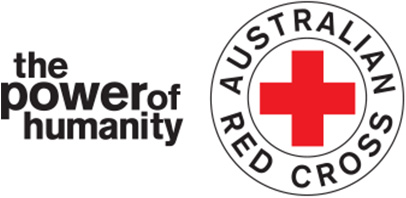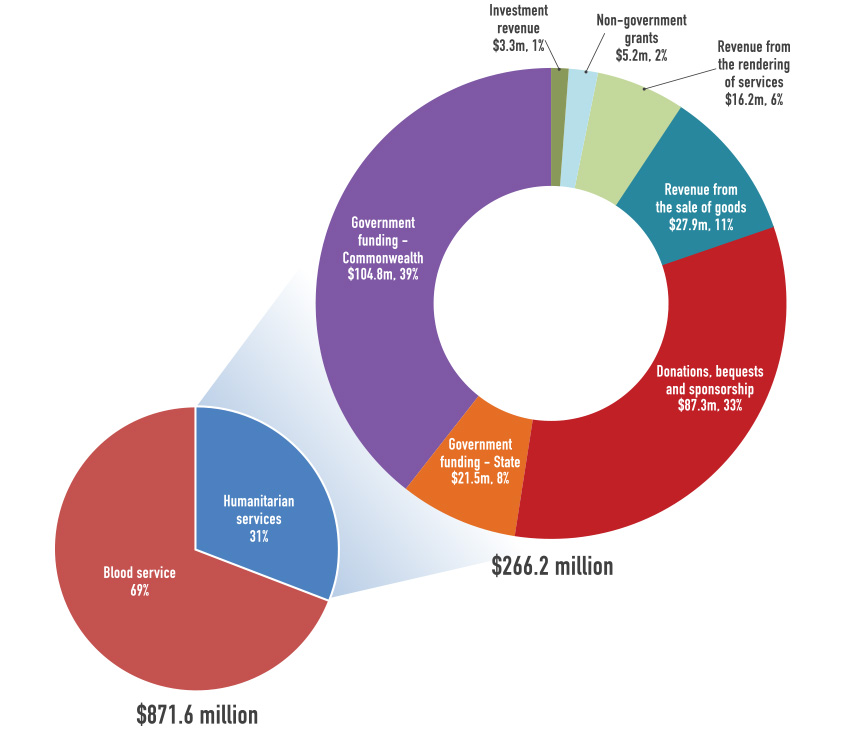
Overall gross revenue for the Society was $871.6 million, including $605.4 million for the Blood Service operating division which is fully government funded. Revenue for the Humanitarian Services operating division totalled $266.2 million, a $27.3 million decrease from the previous year, reflecting a $28.6 million decline in government funding. Despite this reduction, government funding remains our single largest form of income, accounting for 47% of the funding for our humanitarian programs. We aim to reduce our reliance on the proportion of government funding in the long term and diversify and grow other sources of income.
To counter this reduction in government funding, we rely more than ever on the Australian community to support our work. The Australian public donated over $92.5 million this year ($89.7 million for our everyday work and $2.8 million for emergency appeals), a strong result driven by our regular giving program and the generosity of people who give ongoing monthly donations. This year we recorded $27.9 million from the sale of goods, with our retail revenue growing 10% year on year. Overall, 44% of the funding for our humanitarian services came through the Australian community and goods purchased.
This revenue is supplemented by substantial support of a non-financial nature, given to Red Cross in the form of volunteering, gifts in-kind and pro bono services. While we do not place a dollar value on these priceless forms of support, without them our everyday work would not be possible.
All funding opportunities are assessed through internal review processes to ensure that services funded are aligned with community need and Red Cross’ strategic direction. Thorough risk assessments are undertaken to ensure that our services remain viable and effective.
Community support for our humanitarian services
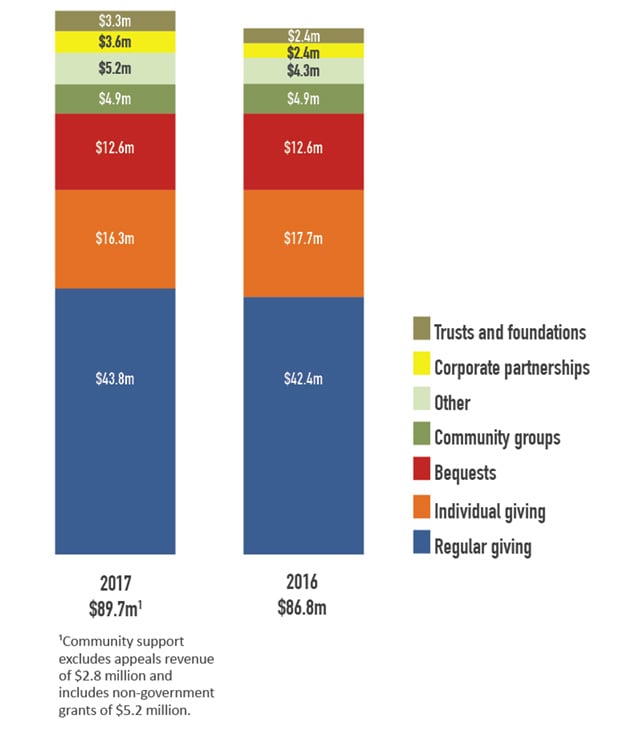
Financial support provided by individuals and the community for our everyday, non-disaster services totalled $89.7 million, reflecting the generosity of the Australian public. The largest source of community support for our everyday work continues to be regular, ongoing monthly contributions. These regular givers donated $43.8 million, a small increase from last year. The overall proportion of our everyday work funded by regular giving remains unchanged at 49% (note that this does not include disaster appeals).
Another key group of supporters are people who thoughtfully leave a gift to Red Cross in their Will. Bequests accounted for 14% of our income and this year provided $12.6 million, comparable with last year.
Almost two in every three dollars given by the community come from regular givers and bequestors, highlighting the huge positive impact made by these groups of ordinary Australians.
We also received income from valued corporate partners, trusts and foundations, individuals making one-off donations, Red Cross members and community groups.
Changes in government funding for our humanitarian services work
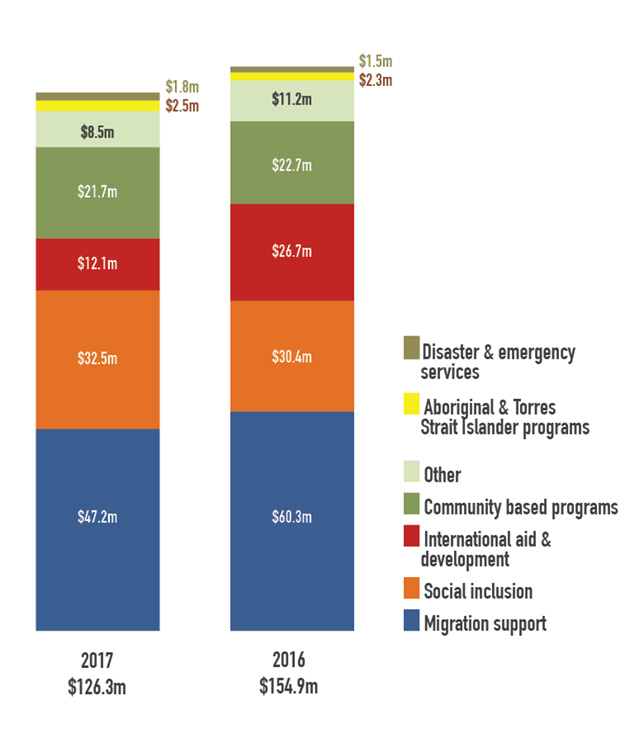
Government funding for our humanitarian services decreased this year by $28.6 million (18%), largely due to the $13.1 million and $14.6 million corresponding reductions in our Migration Support and International Aid & Development programs. Funds for the Status Resolution Support Service program declined this year with a progressive decrease in clients receiving our support services; attributable to the increased processing of refugee status assessments by the Department of Immigration.
In line with Strategy 2020, our International Programs withdrew from the AVID (Australian Volunteers for International Development) program in 2015 and reduced our footprint to focus on providing efficient and effective support to 14 key partner countries in the Asia Pacific region. With no significant disaster appeals in the region during 2016-2017, we did not receive any emergency response funding from DFAT (Department of Foreign Affairs and Trade). Government funding for other areas of our work remained similar to last year.
Our government-funded services must meet stipulated conditions over the term of each agreement and are subject to regular review.
